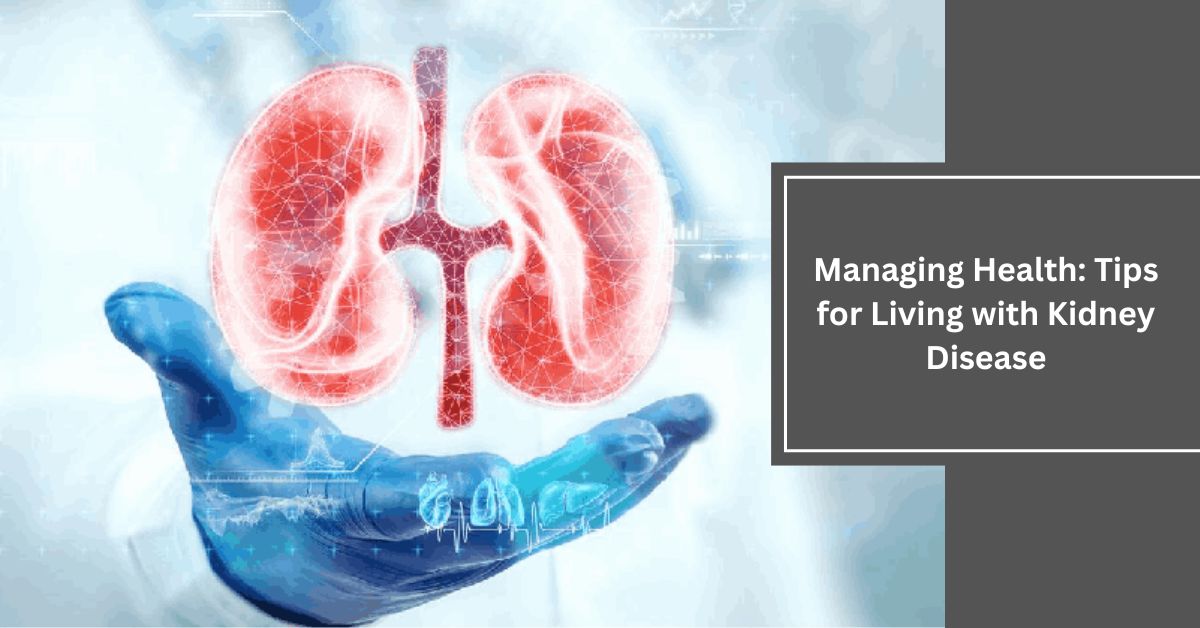Managing Health: Tips for Living with Kidney Disease
Living with kidney disease presents unique challenges that require careful management and lifestyle adjustments. Whether you’re newly diagnosed or have been managing the condition for some time, understanding effective strategies can significantly improve your quality of life. Here, we explore essential tips and practices to help you navigate the complexities of kidney disease with confidence.
Understanding Kidney Disease
Kidney disease, also known as renal disease or nephropathy, occurs when kidneys are damaged and can’t filter blood properly. This condition can progress over time and may eventually lead to kidney failure, necessitating dialysis or a kidney transplant. Common causes include diabetes, high blood pressure, and autoimmune diseases like lupus.
Tip 1: Partner with Healthcare Professionals
Building a robust healthcare team is essential when managing kidney disease. Your nephrologist plays a key role in monitoring your kidney function and prescribing appropriate treatments, while a dietitian assists in customizing your diet to promote kidney health.
Regular check-ups and clear communication with your healthcare team are vital components of effective kidney disease management. If you’re in Tulsa, accessing specialized care such as hospice services can provide additional support tailored to your needs and preferences.
Tip 2: Monitor Blood Pressure and Blood Sugar Levels
High blood pressure and diabetes are leading causes of kidney disease. Managing these conditions through medication, diet, and lifestyle changes can help slow kidney damage. Monitor your blood pressure and blood sugar levels regularly, as recommended by your healthcare provider, and follow their guidance on maintaining healthy ranges.
Tip 3: Adopt a Kidney-Friendly Diet
A kidney-friendly diet plays a pivotal role in managing kidney disease. This typically involves moderating protein intake, reducing sodium and potassium consumption, and controlling phosphorus levels. Foods like fresh fruits, vegetables (with limits on high-potassium varieties), lean proteins, and whole grains are generally recommended. Your dietitian can create a personalized meal plan that aligns with your specific nutritional needs.
Tip 4: Stay Hydrated
Proper hydration is vital for kidney health. Water helps kidneys flush toxins from the body efficiently. However, if your doctor has advised fluid restriction due to advanced kidney disease, it’s crucial to follow their recommendations closely. Monitoring urine output and discussing any changes with your healthcare team can help you strike the right balance.
Tip 5: Exercise Regularly
Regular physical activity benefits overall health and can help manage conditions like diabetes and high blood pressure, which are risk factors for kidney disease. Aim for at least 30 minutes of moderate exercise most days of the week, as recommended by your healthcare provider. Activities such as walking, swimming, and cycling are excellent choices that are gentle on the joints.
Tip 6: Manage Stress and Mental Health
Living with a chronic condition like kidney disease can be emotionally challenging. Stress can affect your overall health, including kidney function. Practice stress-reducing techniques such as meditation, yoga, deep breathing exercises, or hobbies that bring you joy. Seeking support from loved ones or joining a support group can also provide emotional resilience.
Tip 7: Quit Smoking and Limit Alcohol Consumption
Smoking can worsen kidney disease and increase the risk of cardiovascular complications. Quitting smoking is one of the most significant steps you can take to protect your kidneys and overall health. Additionally, limit alcohol intake, as excessive alcohol consumption can impair kidney function and interact negatively with medications.
Tip 8: Adhere to Medication and Treatment Plans
Strict adherence to prescribed medications and treatment plans is essential for managing kidney disease effectively. This may include medications to control blood pressure, diabetes, and other underlying conditions. Follow your doctor’s instructions carefully, and notify them of any side effects or concerns promptly.
Tip 9: Educate Yourself and Advocate for Your Health
Understanding kidney disease empowers you to make informed decisions about your health. Stay informed about your condition, ask questions during medical appointments, and advocate for necessary treatments or lifestyle adjustments. Knowledge is a powerful tool in managing kidney disease proactively.
Tip 10: Plan for the Future
For individuals with progressive kidney disease, planning for potential treatments such as dialysis or kidney transplantation may become necessary. Discussing these options with your healthcare team and loved ones early allows you to make informed decisions aligned with your preferences and values.
Conclusion
Living with kidney disease requires a proactive approach to health management, incorporating lifestyle changes, medical treatments, and emotional support. By partnering with healthcare professionals, adopting a kidney-friendly diet, staying active, managing stress, and adhering to treatment plans, you can enhance your quality of life and potentially slow the progression of kidney disease. Empower yourself through education and self-care, ensuring each day is lived with optimal health and well-being in mind.







